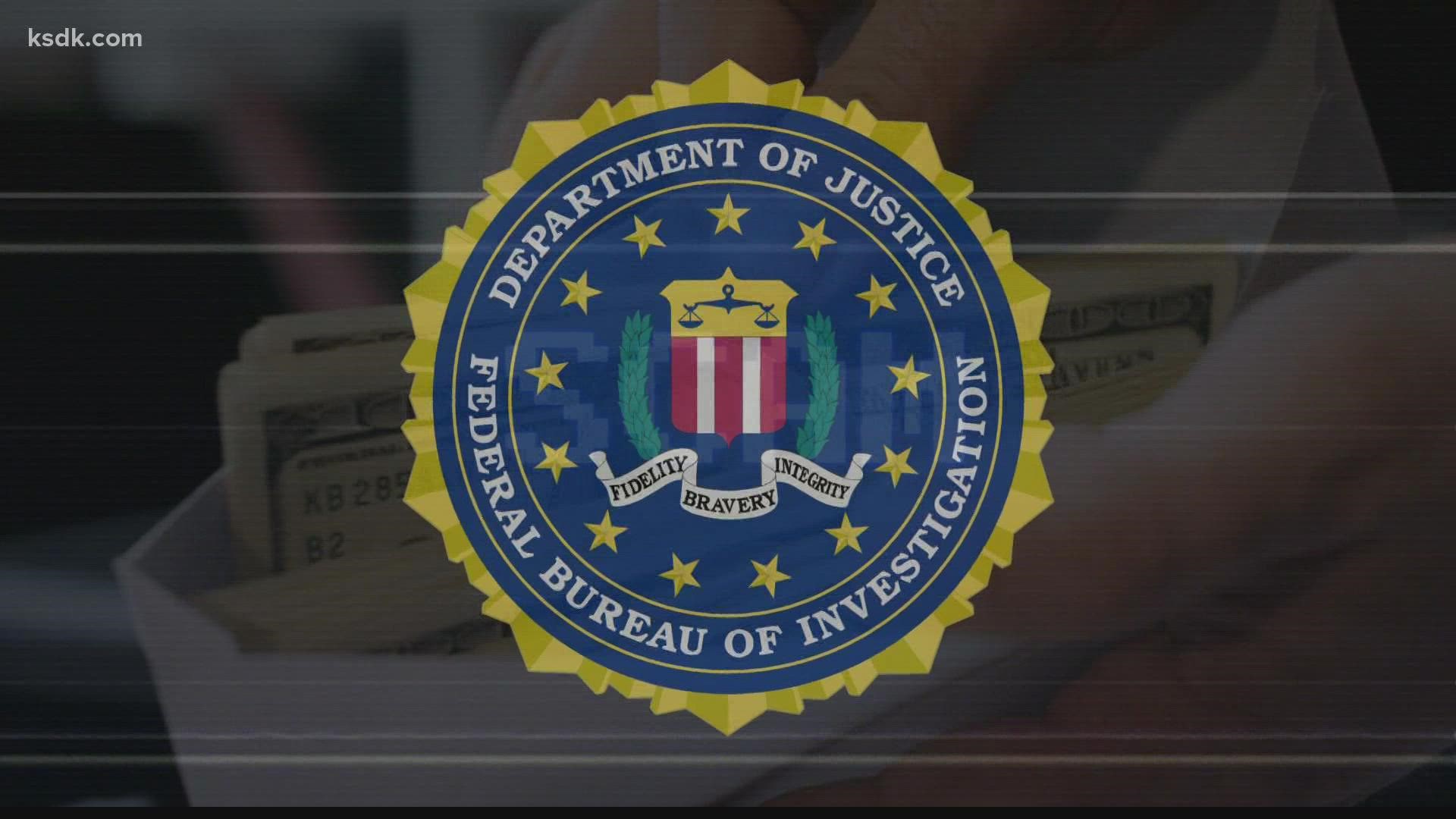ST. LOUIS — Scammers are working harder than ever to separate you from your money and personal information.
The FBI, along with the U.S. Attorney’s Office, sent out a new warning earlier this month about an “iteration of scams where perpetrators are posing as federal courts and law enforcement to scare victims.”
Government imposter scams climbed the list of FBI’s most reported scams during the pandemic.
“What’s changing and evolving is that it’s becoming more sophisticated,” said Jill Mansfield, Supervisory Special Agent. “So, the criminals are actually doing their homework a little more and finding out unique details about the person before they contact them.”
A new twist to watch for
Scammers in these latest plots send an official-looking email or letter claiming to be from U.S. Federal Court or another law enforcement agency.
Agents provided the I-Team with a sample letter which many could find pretty convincing. The letter cites specific state statutes and includes watermarks.
The specific example provided gives a victim two options: Face indictment or accept an agreement as a cooperating witness, requiring $7,000 in legal fees.
“Unfortunately, people fall victim to the sense of urgency that’s attached to these requests and they act very quickly,” Mansfield said.
The bureau also found that scammers are taking a more targeted approach, too, which can make letters all that more convincing.
“They’re utilizing data that has potentially been leaked, through maybe a data breach, to customize their letters and customize the notifications before they send them out,” Mansfield said. “So it might be something that really gets someone’s attention because it’s more unique and it’s more personal to them.”
Simply ignoring the letters and throwing them out also may not be the end of it. Scammers follow up with demanding and threatening phone calls.
“The more that you interact, the more that they’re going to, kind of, become more aggressive,” Mansfield said. “If you feel it’s a scam, then take a step back, verify. If you do find out it is actually a scam, just cease communication.”
If you get a letter claiming to be from a federal court or local law enforcement, the FBI recommends contacting them independently to verify the correspondence.
You can help the FBI connect scams like this and find the people responsible by reporting them to IC3.Gov.

